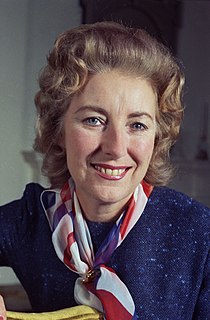A Quote by Charles Murray
Whatever the Victorians did right in England, we need to resuscitate over here. In the late 19th century, the entire English population were propagandised into buying into a certain code of morals. I would be happy if we could emulate that in some way in America.
Related Quotes
I was really interested in 20th century communalism and alternative communities, the boom of communes in the 60s and 70s. That led me back to the 19th century. I was shocked to find what I would describe as far more utopian ideas in the 19th century than in the 20th century. Not only were the ideas so extreme, but surprising people were adopting them.
. . . Luddites were those frenzied traditionalists of the early 19th century who toured [England] wrecking new weaving machines on the theory that if they were destroyed . . . old jobs and old ways of life could be preserved . . . At certain times in his life each man is tempted to become a Luddite, for there is always something he would like to go back to. But to be against all change-against change in the abstract-is folly.
The 19th century Mormons, including some of my ancestors, were not eager to practice plural marriage. They followed the example of Brigham Young, who expressed his profound negative feelings when he first had this principle revealed to him. The Mormons of the 19th century who practiced plural marriage, male and female, did so because they felt it was a duty put upon them by God.
In the 19th century, the English were loathed. Every memoir that you read of that period, indicates the loathing that everybody felt for the English, the only difference between the English and Americans, in this respect, is the English rather liked being loathed and the Americans apparently dislike it intensely.
Here's what I don't think works: An economic system that was founded in the 16th century and another that was founded in the 19th century. I'm tired of this discussion of capitalism and socialism; we live in the 21st century, we need an economic system that has democracy as its underpinnings and an ethical code.
Here's what I don't think works: An economic system that was founded in the 16th century and another that was founded in the 19th century. I'm tired of this discussion of capitalism and socialism; we live in the 21st century; we need an economic system that has democracy as its underpinnings and an ethical code.
In the old days, people shared music; they didn't care who made it. A song would be owned by a village, and anyone could sing it, change the words, whatever. That is how humans treated music until the late 19th century. Now, with the Internet, we are going back to having tribal attitudes towards music.




































